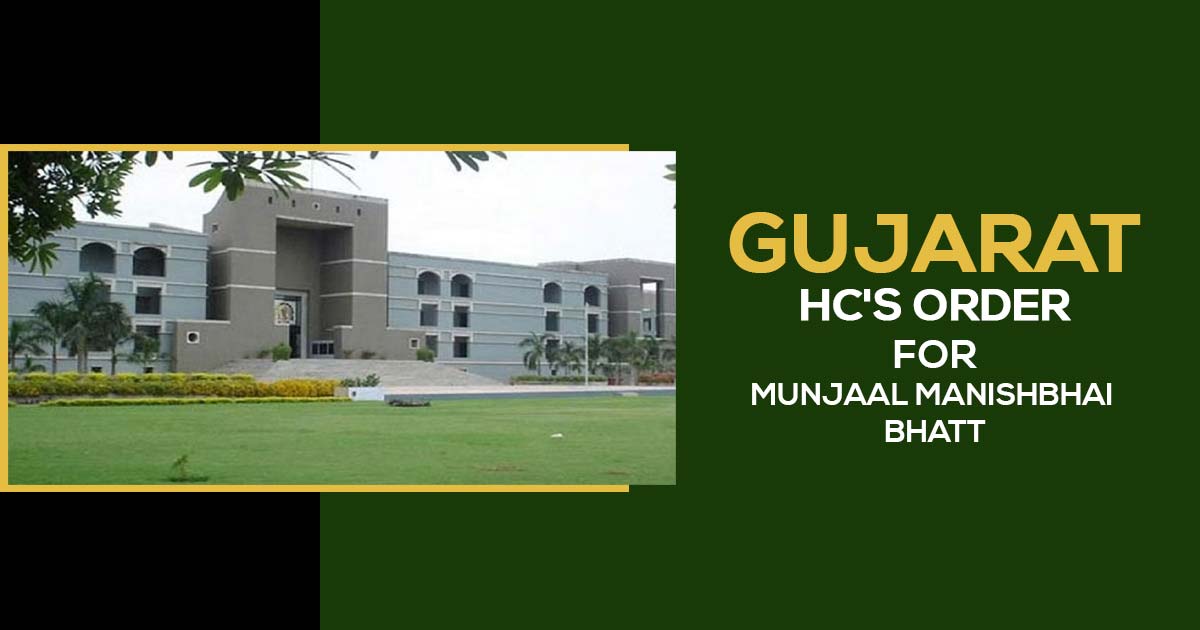
Providing great relief to property buyers, the Gujarat High Court has ruled stating that the costs associated with land are not subject to Goods and Services Tax (GST). The court clarified that only the expenses involved in construction are taxable.
According to the observation of the bench of Justice J.B. Pardiwala and Justice Nisha M. Thakore, the actual value of land or the undivided share of land utilised, and the sale of a flat, villa, or commercial property is completely exempt from GST. The ruling emphasises that it is solely the construction costs that fall within the purview of taxation, the value of the land or undivided share of land for the construction of a flat is not liable to GST.
The case in question involved a writ applicant, who is an advocate, who had entered into an agreement with Navratna Organisers & Developers Pvt. Ltd. to purchase a plot of land. The agreement included the construction of a bungalow on the specified plot of land by the respondent, as per the applicant’s wants.
Under the agreement, all applicable taxes, including GST, were to be paid by the writ applicant. However, the petitioner believed that the construction cost would be subject to taxation (by virtue of the clause) under the Goods and Services Tax Act of 2017, as it could be considered a supply of construction services under the GST Acts.
The writ applicant was informed by the respondent, through entry no. 3(if) of Notification No. 11/2017-Central Tax (Rate) dated June 28, 2017, that they were liable to pay GST at a rate of 18% on the entire consideration for both the land and the construction of the bungalow. The notification allowed for the deduction of 1/3rd of the value attributed to the land. Consequently, the respondent issued an invoice to the writ applicant, demanding payment for the tax.
Although the notification recognized that 1/3rd of the total consideration represented the land value, it failed to exclude the entire consideration for the sale of land when determining the tax liability under the GST Acts.
The petitioner argued that Section 9(1) of the GST Act, which pertains to the imposition of tax on the “supply” of goods and services, should be considered. Furthermore, Section 7 defines the scope of “supply.” Schedule III of the GST Act provides exemptions for transactions by virtue of Section 7(2) of the Act, including the sale of land, as listed in Entry No. 5. Therefore, selling land should neither be considered a supply of goods nor a provision of services. Consequently, imposing a tax on the proceeds from the sale of land through delegated authority violates Sections 7 and 9 of the GST Acts.
The petitioner further argued that when reading the provisions collectively, it becomes evident that sales of land, irrespective of development, are not subject to taxation under the GST Acts. The tax liability should only apply to the construction work carried out as per the contract with the buyer. Accordingly, the entire consideration attributed to the land should be deducted, rendering the notification’s attempt to limit the deduction to 1/3rd of the overall value as is sought to be done by the impugned notification.
Read also: GST: Impact of New Taxation Structure on Works Contract
In response, the department contended that upholding the applicant’s claim regarding the land value stated in the agreement could lead to absurd scenarios where the developer and buyer might mutually agree to assign 99% of the total consideration to the land value and only 1% to the construction. This contravenes the fundamental principles of taxation and could result in significant revenue losses for the government.
The concern raised was whether the notification, allowing for a 1/3rd deduction for land or an undivided share of the land in building contracts, violated the GST Acts and/or Article 14 of the Indian Constitution.
The Gujarat Goods and Services Tax (GST) Act of 2017, which enforces a mandatory fixed rate of 1/3 deduction from the total consideration attributed to the land value, along with Notification No. 11/2017-Central Tax (Rate) issued on June 28, 2017, have been declared as ultra vires the provisions and framework of the GST Acts by the court. The court found that the mandated uniform deduction rate is implemented in a discriminatory, arbitrary, and unlawful manner, thus violating Article 14 of the Indian Constitution.
The court said that paragraph 2 of GST Notification No. 11/2017-Central Tax (Rate) dated June 28, 2017, and the corresponding state tax notification are interpreted in a way that the presumption of a 1/3 deduction will no longer be mandatory. In cases where the actual value of the land or an undivided share of the land cannot be determined, it will be left to the taxpayer’s discretion.
In light of the court’s interim decision, the tax is to be refunded to the writ petitioner as they were the ones burdened with the tax payment, which was made under protest.
| Case Title | Munjaal Manishbhai Bhatt Versus Union Of India |
| Citation | R/Special Civil Application No. 6840 Of 2021 |
| Date | 06.05.2022 |
| Counsel for Petitioner | Uchit N Sheth |
| Counsel for Respondent | Devang Vyas |
| Gujarat HC | Read Order |








